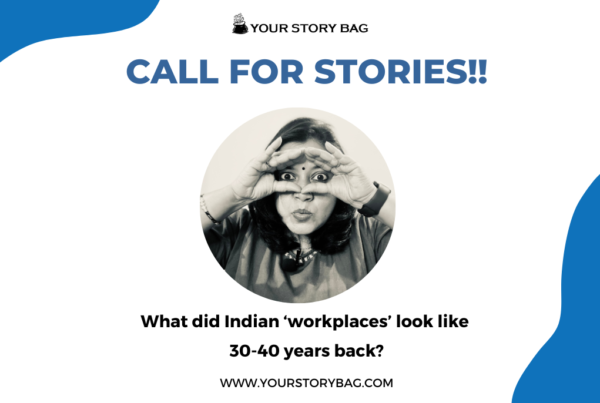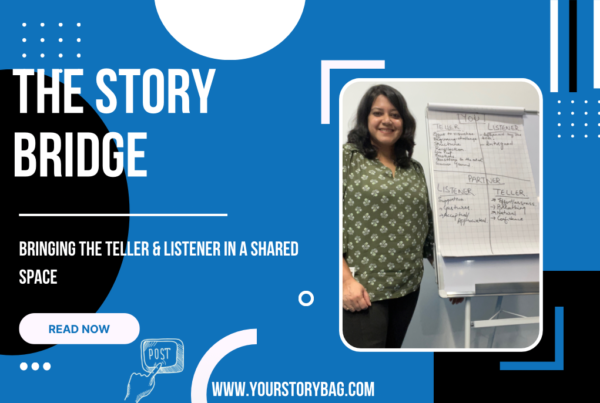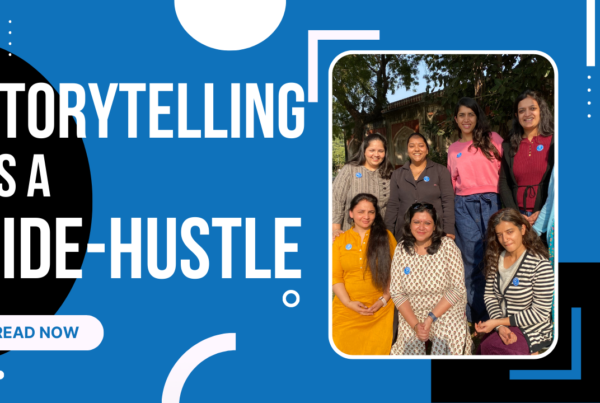Last week I shared the top 5 lessons from telling 100 stories at HCL.
You may ask how different are these stories anyway? In an IT / ITES organization, these are all engineers that we are talking about! When I started writing this piece, I realized that I could actually write 100 lessons from 100 stories! That would mean sharing all the 100 stories!
What makes each of these stories unique is that there is a different client in every case. The complexity of the problem is different. The response to challenge, problem solving and the genesis of every idea is different.
Most importantly, it is always about team work! Even though the nature of the project highlighted certain key Ideapreneurs, no single Ideapreneur was happy being under the spotlight alone; purely because no idea ever was executed alone. Something like Todd McMillion’s story. I spoke to Todd about his idea, but every time he insisted that the idea would not have been executed without his developer-buddy, David. Todd said, “He is typical developer who will spend hundreds of hours on a project without a single blink! The success of this idea rests on his meticulous development.”
Organisations strive for success, but only those achieve it that work like well-oiled machines, where teams work seamlessly, hand-in-hand with one sole focus. This is where the great stories lie!
Oh! I Am The Hero In My Own Story!
And then comes the disbelief! Very seldom do people look at themselves as heroes! Sad, but it is true! Seeing one’s story as a third person makes people look at themselves objectively. Even when they may not have articulated themselves really well, putting the pieces of the puzzle together and weaving a definitive narrative makes a tremendous impact. So when people wrote back very kindly saying, “Wow! I feel like a hero!” I wrote back saying, “Of course! You are the hero of your own story!”
People need to feel like heroes in their own stories. A hero can fight and persevere, a hero can try and fail, a hero can try again and be resurrected! It can be a hero’s story in progress. Like all the Ideapreneurs who I spoke to said, “I am already working on my next idea!” Stories are an evolving process. It doesn’t change its importance.
This Storytelling Is A Heady Feeling!
Recognition is better than reward! It’s time organizations wake up to the truth about their employees’ minds. I am not saying rewards are not important, increments, bonuses and incentives all have their own place in the working lives of individuals, but really what matters more is whether you are being appreciated for your efforts.
In all the stories that I gathered, the fact that these stories are being converted into graphic novels, films, presentations, with even merchandise being designed around them, brought a lot of energy! Storytelling is a heady feeling. Knowing that 100,000 people know you and your name gives an incredible high!
The Growth Stories
To the outsider in me, it was both puzzling and inspiring to see that HCL Technologies has really nurtured its talent. I met employees who have spent their life time in the organization, some close to 18 years!
These old horses, as I like to call them had a treasure trove of stories. For example, sometime in the early-90’s Vinay Shukla * completed his Engineering. He chose Civil because the intention was to join his family’s construction business. Having another Engineer in the house isn’t bad, right! So Vinay worked his early years drawing buildings, supervising their construction, getting covered in dust and grime. Until there was a new buzzword in the world! Information & Technology was the new emergent field and there was whisper that there was more money in this field. So at 28, Vinay bade goodbye to his family business of 30 years and dived into the new exciting world of IT as a fresher! He went back to studies, picking up courses and certifications that would give him a start. Vinay rewound 5 years of his professional life to begin at zero. But like he says, “There was a lot of energy and expectation from IT. HCL was just born and everyone was talking about it!”
Drawing out the stories of the early years gives a fresh perspective to the whole storytelling exercise. These are nostalgic stories, stories stored in sepia tones in the human brain. To a lot of people it meant recalling HCL’s infancy. To the storyteller in me, it meant drawing out the history of the organization to tell its amazing story of growth.
Wow Tellers
Can storytelling be learnt? I don’t think so! I believe that there is a storyteller in each one of us. Just that we don’t know. All these 100 people have stories worth telling and that makes them storytellers. We all have, what I call ‘Story Bones’ and all I need to do is tickle it.
Every organization has a few Wow Tellers – people to whom storytelling comes naturally. These could be people who own these stories; this could be people who know how to own these stories. These could be people who are great communicators but lack the infusion of stories to make dramatic presentations! An organization needs to identify and invest in these people.
Tell them the other side of the story
Stories flow in all directions. Down-up, up-down, laterally, diagonally, in-out –it’s quite like air, you see. In an organization, storytelling can replace traditional communication channels, combat team hostility, foster senior-subordinate relations, boost expression, and empower presentations, knowledge and experience.
As an outsider, it was humbling to have people open up their deepest thoughts. When targets are replaced by ideas, when recognition is delayed, when performances are rated, there are some stories that emerge that need to be told.
Organizational Storytelling Is All About A Culture
In an organization there are all kinds of storytellers. Despite a sustained insistence, a systemic process in place, we found a few reluctant storytellers. Not everyone understands and appreciates the storytelling process. And let’s accept it, not everyone is interested in being storytellers! So what, if you say my story is worth telling? Then there are work-related commitments that warrant attention and energy! Within these 100 stories there were a few that moved painfully slow! Storytelling can begin as a marketing exercise, but what matters really is to create a culture of storytelling. Organizational Storytelling is often a long drawn exercise, something that has to be nurtured and experienced as it happens. It has to be captured in real time. Understanding the importance of stories, learning to harness the power of stories and cultivating a culture where stories flow naturally without someone like me coming in is really a question of patience, perseverance and practice. This is the only way reluctant storytellers can be converted into committed storytellers.
Today HCL has about 100 ready stories in its story bag, but there are miles to go and many stories to add!
How does one create a storytelling culture? Well…that’s another story!
To know how Your Story Bag can help your create a storytelling culture, connect with us at Rituparna@yourstorybag.com






